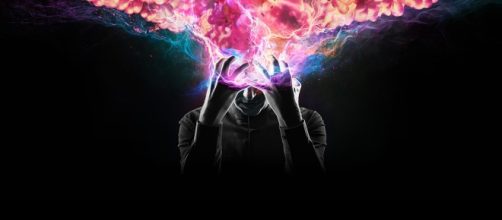FX’s attempt at bringing a Comic Book property to life in the form of the show “Legion” is anything but your normal superhero fare. After watching the first four episodes of the show, my opinion falls somewhere between admiration for showrunner Noah Hawley’s attempt at charting a new course in Superhero storytelling and exhaustion from trying to navigate this new terrain.
Normally…
Comic book properties adapted to television and movie screens for the most part stick to a certain formula. Flawed protagonist gains some superhuman ability, or comes to term with one, and then sets off on a journey of discovery and adventure.
Of course, each adaption has its own quirky style such as the gritty noir feel of Netflix’s “Jessica Jones” or the bright and sunny tone of CW’s “Supergirl”, but in general these shows stick to the same sort of story development.
Then came along David
“Legion” is based loosely on the X-Men character David Haller who in the comic books is the mentally disturbed son of Professor Charles Xavier. Stylistically the show has elements of “X-Men: First Class” with its retro vibe and the characters’ hipster fashion sensibilities.
How “Legion” upends normal superhero conventions is by making the main protagonist, Haller played terrifically by Dan Stevens, deeply flawed and psychologically unstable. Haller’s telepathic abilities are misdiagnosed as schizophrenia at a young age, and the audience follows the show from his confused point of view.
Reality and illusion are often one in the same in Haller’s head which leads to a nonlinear style of storytelling that’s comparable to a bad acid trip.
A psychiatrist played by Jean Smart begins the process of separating Haller’s false memories from reality with help in this effort from a memory artist mutant named Ptonomy and Haller’s mutant girlfriend, Sydney Barrett. As they, along with other memorable characters who may actually exist or not, try to help Haller come to terms with his seemingly infinite mutant powers which include telepathy, telekinesis, and teleportation to name a few,the audience along with Haller try their best to decipher exactly what is truth and fiction.
This journey of self-discovery is admittedly both exhilarating and exhausting in my view.
The first two episodes were like watching a Hunter S. Thompson hallucination filmed by Wes Anderson on Xanax. Not to say these episodes were bad because it was quite the opposite. The helter skelter storytelling nature of the show and deeply flawed narrator in the form of Haller was rather refreshing and made me want to tune in for more.
The last two episodes find Haller coming more to terms with his abilities as well as less under the influence of the narcotics which altered his and the audience’s reality even more. These developments have begun to make the show more traditional in the sense now the protagonist must battle the baddies known as Division 3 to save his sister.
Still, “Legion” defies traditional superhero conventions and character archetypes even in its newfound normalcy. With only four episodes having aired, I’m reserving judgement about the show, but my gut tells me the show is far more better than worse for its unorthodox and sometimes confusing story.

